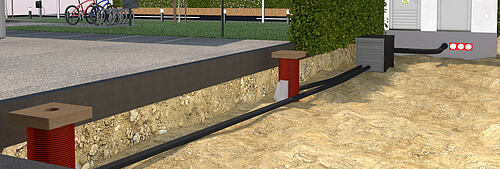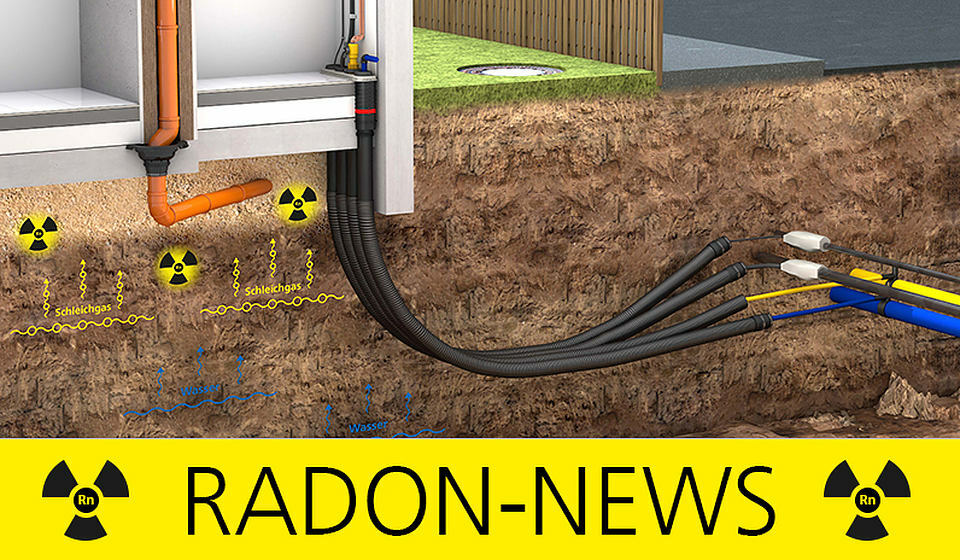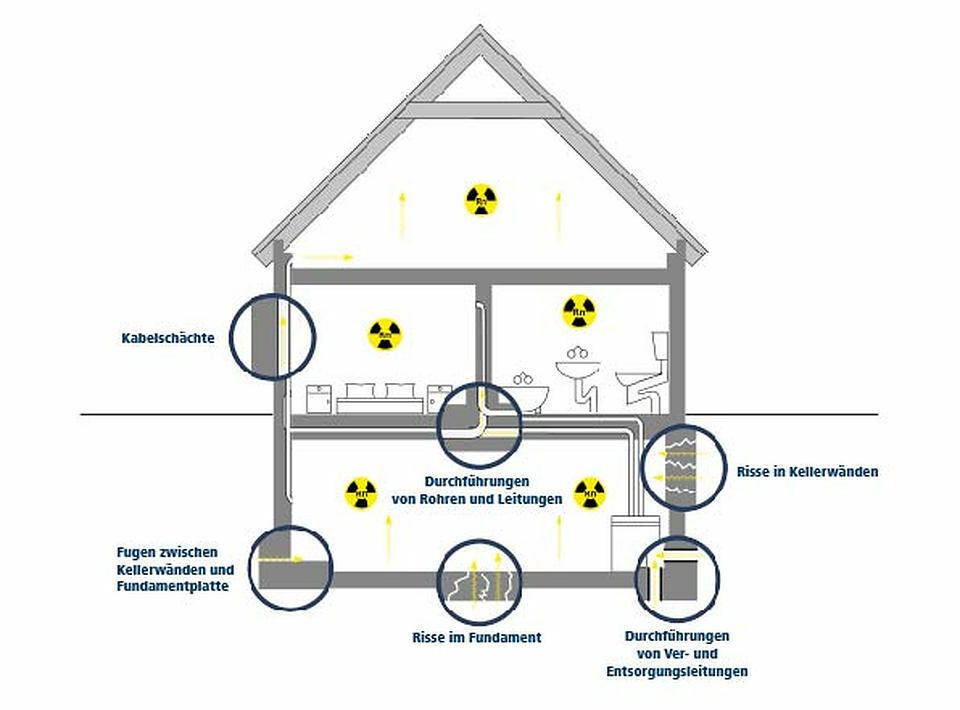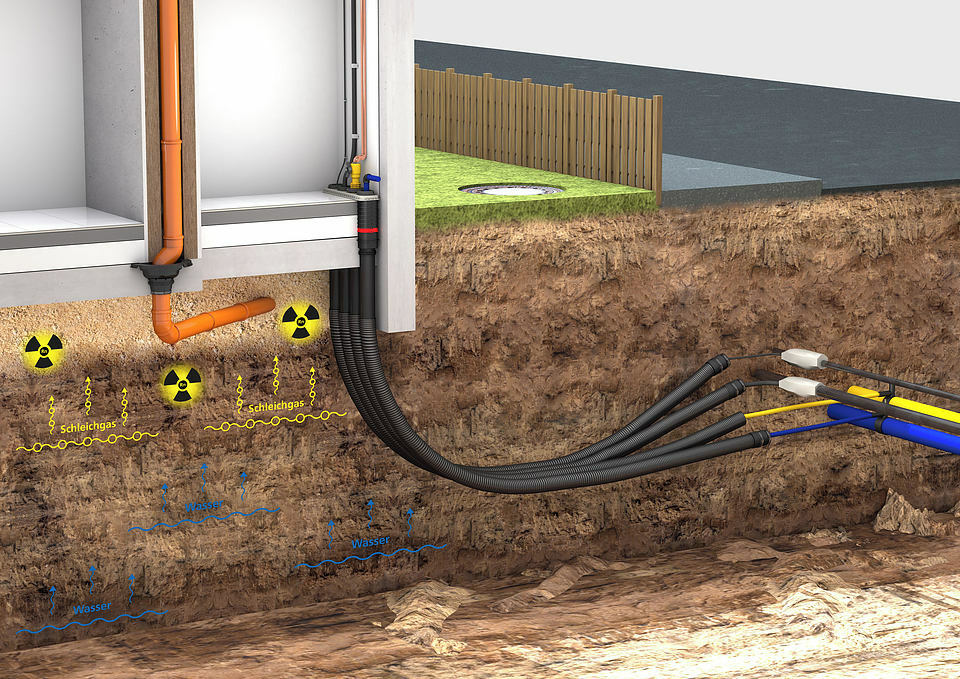Radon in the construction sector
Nowadays the issues of fire protection and energy saving are entirely taken for granted in connection with buildings and are subject to binding legislation. According to experts, the new Radiation Protection Act could create a similar situation regarding the noble gas radon.
A noble gas that is making waves among house builders, architects and construction companies: radon. According to radon expert Karin Leicht, there is still a lot of uncertainty because too little is being done to raise awareness of the subject. It is important to break through this barrier: in future, the issue of radon could develop in a similar way to fire protection and energy saving, where statutory requirements are already firmly in place. The expert anticipates that certificates and provisions may soon come into force that regulate liability in connection with radon gas.
The entry of radon in a new building can be regarded as a defect under contract law, which will pose fresh challenges for construction companies and architects. Many planning engineers and construction professionals are not yet even aware of the sensitivity of this issue, in particular the potential liability involved.
A distinction is drawn between buildings with and without a basement. Since buildings with a basement often have an open staircase, radon can easily spread to the upper floors. In buildings without a basement, however, planners often save on sealing since exposure to moisture appears to be indirect, says Ms. Leicht. But the lack of a functional, air-tight seal simply opens the floodgates to the radioactive noble gas.
It has not yet been established whether or not a floor slab made of waterproof concrete provides sufficient protection from radon or whether a radon-proof foil or vapour barrier strip is always necessary. The current assumption is that a 20 cm thick floor slab made of normal, non-cracked concrete without gaps and penetrations offers a sufficiently leakproof barrier for the diffusive entry of radon. But the question is whether such a thing as the ideal floor slab actually exists in real-life conditions.
For this reason, Ronnie Radon recommends not saving on sealing work in new buildings but ensuring that buildings without a basement are fitted with radon-proof sealing. When it comes to radon-proof building entries and wall entries, Hauff-Technik is the right address.
(Sources: Interview with Ms. Karin Leicht on 04.12.2018 and website of the Federal Office for Radiation Protection)




















































